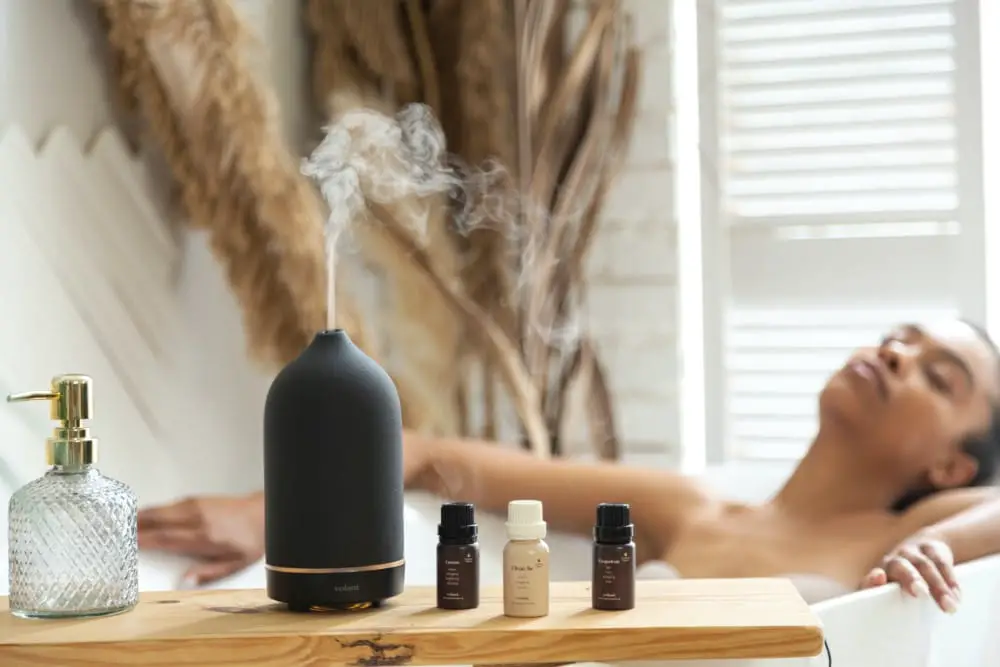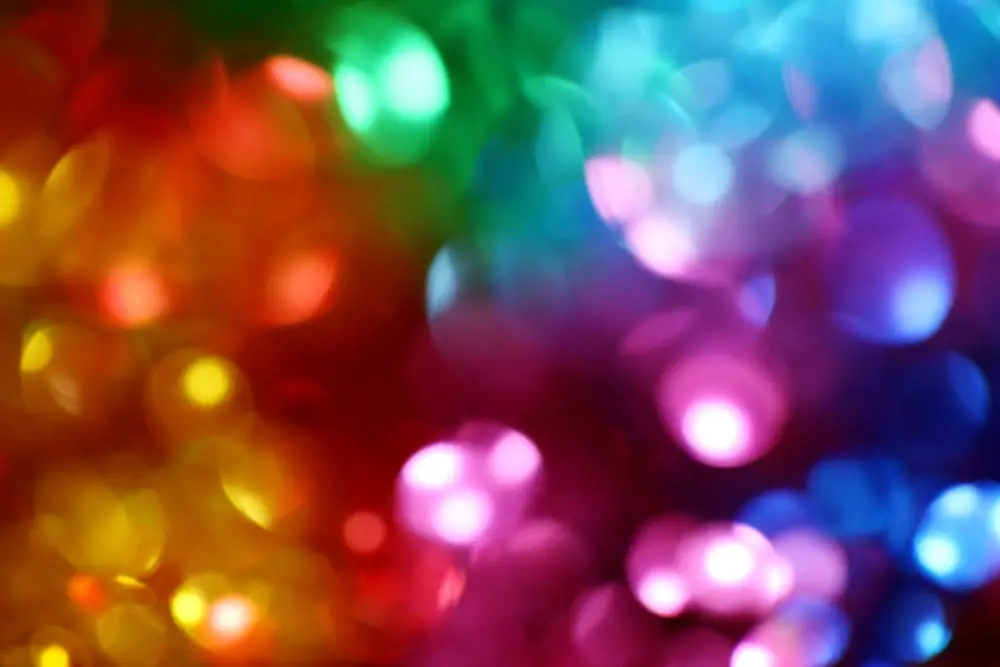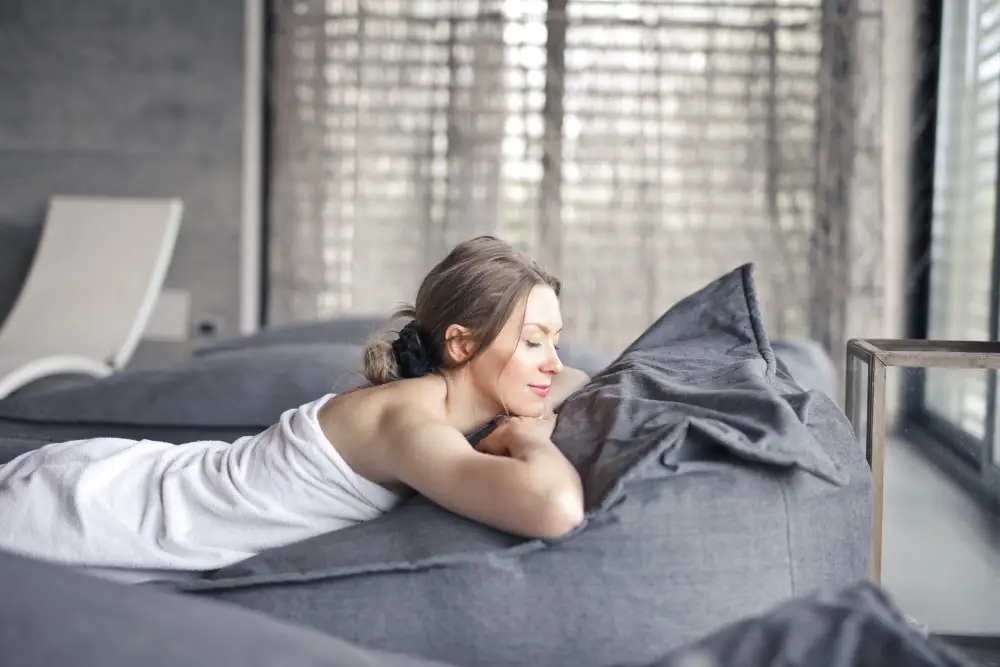
What is aromatherapy?
Close your eyes for a moment and think of that scent that transports you to absolute happiness.
Do you have it?
Aromatherapy is nothing more or less than an ancient art and science that consists of extracting essential oils from plants to promote health and create physical, mental and spiritual harmony.
Aromatherapy is the art and science of aromatherapy, which consists of extracting essential oils from plants to promote health and create physical, mental and spiritual harmony.
As you probably know, each plant has unique properties, although in our daily life we tend to use only some of the best known, such as aromatic herbs, to make infusions, use them in cooking...
However, there are many others that can help us to feel better: from simply evoking pleasant memories or helping us to connect with emotions that comfort us, to helping us to improve some physical ailments.
Their origin is in herbal medicine: our grandmothers (and many people before them) knew hundreds of remedies for which they used various parts of some plants (flowers, fruits, seeds, leaves, roots, resins...)
In the beginning, it only involved the medicinal use of essential oils, but over time, their use has spread and nowadays we use them, above all, to contribute to well-being.
For example, while I'm telling you all this, I have a humidifier in front of me that diffuses a blend of bergamot, geranium, rose, melissa, and sandalwood essential oils and helps me concentrate, feel comforted and calm and connect with my inspiration.
For years, scientific studies have been carried out periodically with the aim of proving the effectiveness of some oils in stress reduction, to help in situations of anxiety, and even modify the perception of pain (for this are used, for example, essential oils of lavender and rosemary).
But they are also widely used to facilitate moods that help us to be more relaxed, to concentrate or to be more productive.
For example, in Japan it is common to diffuse essential oils in the workplace to reduce stress and improve performance, and in some private healthcare facilities in France and Spain, aromatherapy is used to reduce hospital odor or help patients feel better.
But let's take it one step at a time.
What is an essential oil?
According to the International Federation of Aromatherapists, it is an aromatic and volatile substance that is extracted from a specific botanical source, such as a rose, a cedar, an orange or a lemon.
In fact, if you take the peel of a lemon or orange (keeping the white part) and twist it over and over on itself, it will eventually release droplets of a juice that is none other than the essential oil.
Each oil has a complex chemical composition, which affects its aroma and therapeutic properties and can vary from one extraction to another, even when it is the same plant. That is why an essential oil of lavender grown in one part of the world is not the same as in another.
How can aromatherapy help you?
Although nowadays the best-known use of essential oils is to promote an atmosphere of relaxation, calm, peace and well-being through smell, the truth is that aromatherapy can help improve health in a wide variety of situations: skin problems, muscle problems, arthritic pain, stressful situations, menstrual discomfort or respiratory problems can improve thanks to the action of essential oils applied in any of its uses.
Essential oils pass through the skin easily, so that their molecules reach the circulatory system through the blood vessels of the dermis. But in addition, when we inhale, the chemical signals are transformed into electrical responses before reaching the olfactory bulb. From there they are transmitted to the brain and generate impulses that release emotions and hormones.
Aromatherapy acts in several ways on each person:
- Aromatherapy acts globally on our whole organism: on a physical, emotional and nervous level.
- Favor health (although they do not have to cure).
- They respect and promote the balance of the intestinal flora.
- They do not create dependence
- They balance and harmonize our emotional states, connecting us with well-being
How essential oils are used
I'm sure that when you think of essential oils, one of the first images that come to mind is that of a good relaxing massage, right?
Well, you're right, one of the best-known uses of aromatherapy is precise that: massages, whether relaxing or therapeutic.
However, it is by no means the only way to use essential oils to improve your well-being and health.
Essential oils are effective through the skin, when used in massage, through smell, by inhalation, and, depending on the essential oil in question, can even be ingested (although I advise you to be very cautious with this type of use and always do it in the hands of professionals and experts in aromatherapy, as only some oils of some brands are suitable, such as Young Living, which has a specific range of oils prepared for human consumption, with specific labeling on the oils indicated for this use).
In addition, these are very concentrated oils (much more than almond, coconut, olive oils...), so, although there are oils that are used directly without any problem, if you are going to use them on the skin, it is advisable to dilute them in one of these vegetable oils, so that it acts as a carrier and you can benefit from all its properties without exposing your skin to possible irritations.
- Massage: A few drops of essential oil are used on a base of carrier oil, cream or lotion, so that, through the action of massage, the essential oil molecules penetrate the skin.
- Compresses: here a few drops of essential oil are mixed with water, in which a cloth is dipped to soak it and apply the wet compress on the area we need to soothe.
- Baths: it is also very common to add a few drops of essential oil to the bath water and let the aromatherapy do its "magic". The essential oil can also be diluted in salts or milk and add this mixture to the water, as well as to unscented shower gels and shampoos.
- Direct inhalation: you can take advantage of the aromatherapy properties by inhaling the essential oil directly from the bottle (place it about 10 cm below the nostrils) or put a drop of essential oil on the palm of your hands and make several deep inhalations.
- Through dispersion, using a diffuser (a humidifier suitable for aromatherapy in which a few drops of essential oil are added to water) or by spraying them with a spray.
- By evaporation: for example, by combining them with water and resting them on a safe heat source.
However, although aromatherapy has many advantages for our daily life, we must also take into consideration some aspects to use it safely.
Precautions to enjoy aromatherapy safely
As I was telling you, essential oils have the ability to harmonize body, mind and spirit, but they are chemical compositions (although natural) very concentrated, so using them directly, depending on the oil we are talking about, may not be the most appropriate option.
That is why there are a number of recommendations that will help you enjoy essential oils with all the tranquility of the world:
- Use quality oils for optimal use and better tolerance. Make sure they are 100% pure, natural and whole oils, if possible with organic certification.
- Make sure you can know the actual composition of the oil and how it has been obtained (or what substances have been added to it to obtain a sufficient quantity for use). Some brands do not use totally pure oils but add other chemical compounds to make production cheaper.
- If you use the oil in its pure state (i.e. directly from the bottle), try to use it away from mucous membranes, especially the eyes. In addition, some oils irritate the skin.
- If you are pregnant, you should be cautious with some oils, such as peppermint, sage, Atlas cedar, rosemary camphor, and some others. The most advisable thing, in this case, is that, if you want to use essential oils, you do so always accompanied by experts in the field who can advise you on the most suitable for you.
- Take caution with the use of essential oils in children: in their case, the oil should be used much more diluted than in adults.
- Keep the oils always out of reach of children: remember that they are very concentrated and, in most cases, a couple of drops are very effective. If a child ingests essential oil directly from the bottle, even if it is fit for human consumption, there is a great risk of intoxication.
- Use them with care if you have sensitive skin: dilute them in a carrier vegetable oil and, if you use a drop of pure oil, always do a test first, for example, on the wrist, to check if it causes itching or redness.
- There are oils that contain photosensitizing agents and can leave spots on the skin if you are exposed to the sun after use. This is especially true of citrus oils (lemon, orange, bergamot...). Do not use them when you are going to expose yourself to the sun's rays.
- Store them well-covered and protected from sunlight so that they do not lose their properties.
- If you suffer from any illness such as epilepsy, always consult your doctor before using essential oils.
Aromatherapy is a technique that, with a few simple precautions, can help you a lot to achieve wellness, both in spa treatments and in your daily life.
That is why many of the centers that you can find on our website have treatments that combine water therapies, spa treatments, and aromatherapy to achieve the best results.
What scent would you like to indulge in today?





